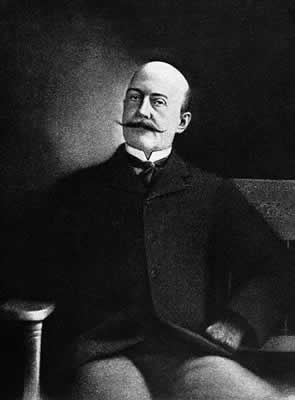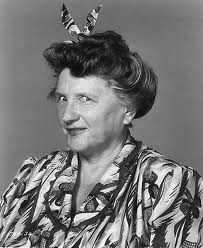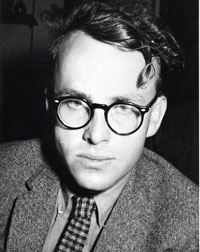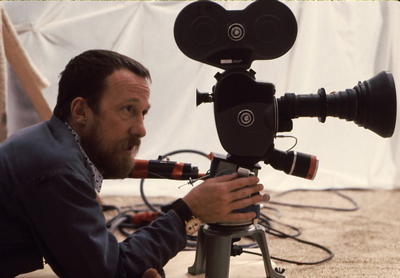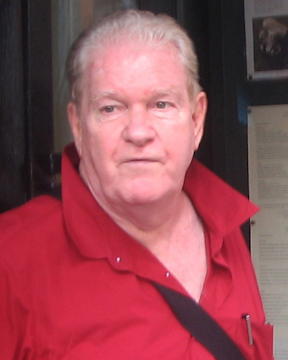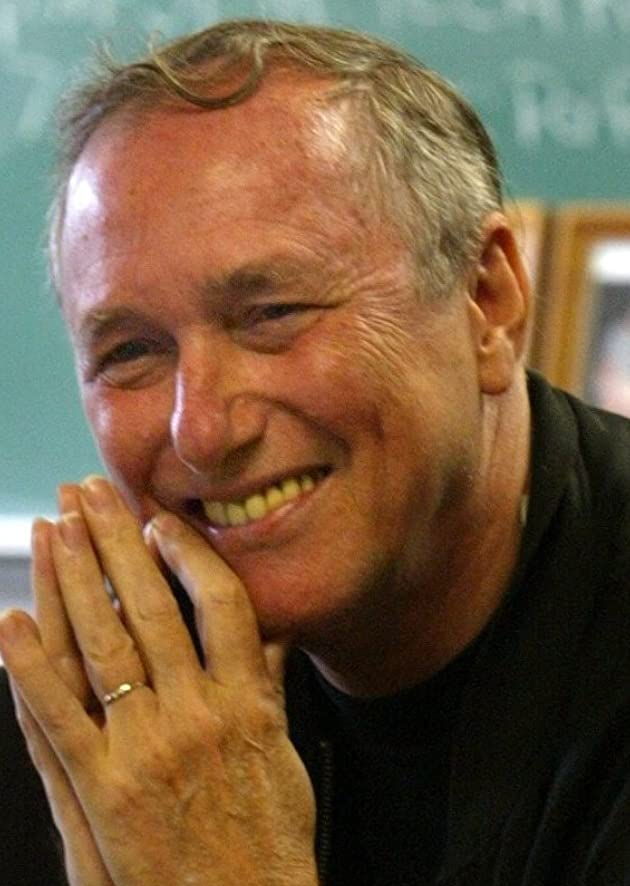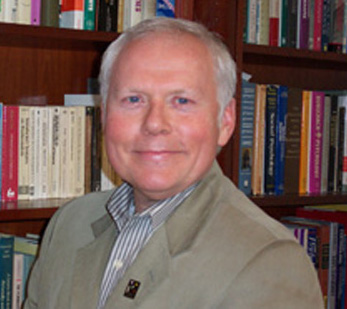|
presents THIS DAY IN GAY HISTORY based on: The White Crane Institute's 'Gay Wisdom', Gay Birthdays, Gay For Today, Famous GLBT, glbt-Gay Encylopedia, Today in Gay History, Wikipedia, and more …
Collected by Ted FEBRUARY 24 [{(o)}]|[{(o)}]|[{(o)}]|[{(o)}]| [{(o)}]|[{(o)}]
1836 – Winslow Homer (d.1910) was an American landscape painter and printmaker, best known for his marine subjects. One of the most prolific and important American painters and printmakers of the second half of the nineteenth century, Winslow Homer created a distinctly American, modern classical style. Homer dealt with many of the same themes that writers such as Henry Thoreau, Herman Melville, and Walt Whitman did, including the heroism displayed by ordinary individuals, when confronted by seemingly insuperable difficulties; the camaraderie and friendships enjoyed by soldiers and working men; and the isolation of the individual in the face of the "Other." Born in Boston on February 24, 1836, Homer was initially trained as an artist by his mother, Henrietta Benson Winslow, who successfully exhibited watercolors of flowers and other still life subjects throughout her adult life. Between 1855 and 1857, he was apprenticed to John H. Bufford, a nationally prominent commercial artist, based in Boston; with this training, he began to do free-lance work for Harper's Weekly and other magazines. In 1861, Homer was commissioned by Harper's Weekly as a special artist/correspondent to record the events of the Civil War. Homer failed to produce the heroic battle scenes that his editors had wanted. Yet his images of the daily lives of ordinary soldiers greatly appealed to the magazine's readers and helped to establish his reputation. Among other subjects, he represented guard duty (A Sharp-Shooter on Picket Duty, wood engraving, 1867); punishments for minor infractions (A Punishment for Intoxication, painting, 1863); medical care for the wounded (The Surgeon at Work at the Rear During an Engagement, wood engraving, 1862); and recreation (Soldier Dancing, drawing, 1862). 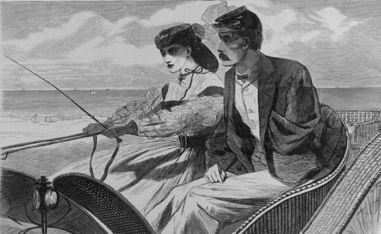 The Empty Sleeve at Newport (Click for larger) As the war ended, Homer revealed the personal "costs" of the conflict in such images as The Empty Sleeve at Newport (wood engraving, 1865), which represents a one-armed man, riding in a carriage with a sad, aloof well-dressed woman. Very little is known about Homer's "private" life. He consistently refused to answer personal questions from critics and potential biographers, and he left no revealing diaries or other personal papers. His reclusiveness is indicated by the fact that he produced no self-portraits; in contrast, most American and European painters of the nineteenth century eagerly exploited the rapidly growing market for images of artists. Most historians have adamantly maintained that Homer remained a bachelor because he was extraordinarily "shy" around women. However, it would seem more plausible to suggest that Homer simply may not have been interested in women sexually. Constructing Homer as a solitary eccentric, who virtually withdrew from human society, most scholars have overlooked evidence of significant, intimate associations with other men. One of his closest friends was Albert Kelsey, a fellow artist whom he initially met in 1858 in Massachusetts. In 1867, Kelsey traveled with Homer to Paris, where they lived together for the next two years. A studio photograph, made while they were in Paris, mimics the conventions of marriage portraits, as do so many photographic portraits of male friends of this period. Kelsey inscribed the back of the photograph with the names "Damon and Pythias," famous ancient Greek heroes and lovers. In the 1890s, Homer remembered their friendship in the humorous and erotically suggestive drawing "Albert Kelsey riding a giant turtle in the Bahamas."Homer's closest companion in the final years of his life was an African-American man, Lewis Wright, who worked as his servant and lived at his Prout's Neck, Maine estate from 1895 to 1910. There are indications that some of Homer's acquaintances were disconcerted by the apparent closeness of his friendship with Wright. While most "negative" reactions involved race, other "unmentionable" factors may also have been involved. 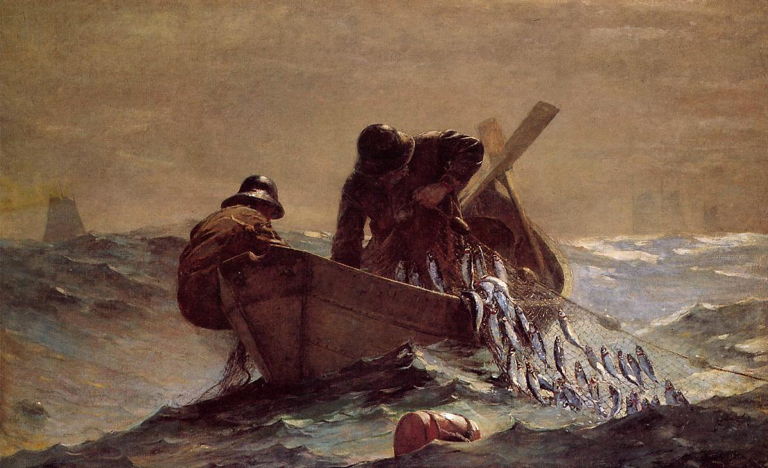 The Herring Net (Click for larger) Throughout his career, Homer created images that celebrated diverse aspects of male friendships. Thus, he depicted soldiers, unified in melancholy longing for peacetime home life (Home, Sweet Home, 1863); wilderness guides enjoying the beauties of nature (Two Guides, 1871); and fishermen laboring together (The Herring Net, 1885) and coping with dangerous storms (The Signal of Distress, 1890). Homer died on September 29, 1910 in Prout's Neck, Maine.
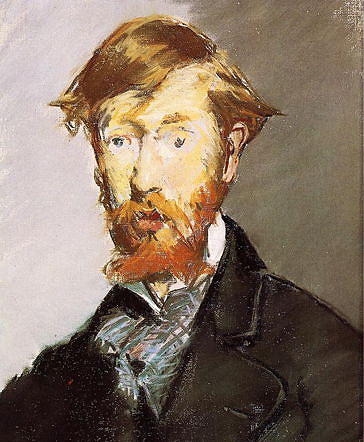 1852 – The Irish novelist, short-story writer, poet, art critic, memoirist
and dramatist, George Moore was born on this date (d.1933). Moore came
from a Roman Catholic landed family. He originally wanted to be a painter,
and studied art in Paris during the 1870s. There, he befriended many of the
leading French artists and writers of the day.
1868 – The first parade to have floats is staged at Mardi Gras in New Orleans, Louisiana.
1890 – born Marjorie Main (d.1975) American actress, born in Acton, Indiana
as Mary Tomlinson. She studied at Franklin College in Franklin, Indiana, and
adopted a stage name to avoid embarrassing her father, who was a minister. Main died of lung cancer on April 10, 1975 in Los Angeles at the age of 85. She is buried in Forest Lawn Memorial Park in the Hollywood Hills Her name is listed on her headstone as Mrs. Mary Tomlinson Krebs, with her stage name Marjorie Main underneath. She is best known for her role as Ma Kettle in the Ma and Pa Kettle series of films, which were offshoots of "The Egg and I".Other films include: Stella Dallas (1937), The Man Who Cried Wolf (1937), The Shadow (1937), Romance of the Limberlost (1938), The Women (1939), The Harvey Girls (1946), and The Egg and I (1947).
Having gained a Ph.D. degree, Hine taught classics at the University of Chicago for several years and edited the prestigious Poetry magazine from 1968 to 1978. His early work culminated in the poetry volumes The Wooden Horse (1965) and Minutes (1968). Hine's homosexuality was largely a matter of insider knowledge, but in 1975 he published an autobiography of his early years in verse, In & Out, in which he chronicled two romances of his McGill career which culminated in his attempt to escape his sexuality by converting to Catholicism and spending a summer in a Vermont Benedictine monastery. In & Out was initially available only in a privately-printed version in limited circulation. The work did not gain general publication until 1989. In & Out is both witty and painfully moving, and clarifies how Hine's intellectual engagement with both classicism and Catholicism provided the confused young poet with a way of articulating homosexual experience and a way of coming out. Since 1975, Hine's volumes of poetry have dealt more explicitly with the pain of growing up gay during the 1940s and 1950s and have given serious homosexual poetry a place in the mainstream of American poetry. Hine lived in Illinois with his partner of more than 30 years, Samuel Todes, a philosophy professor at Northwestern University. After Todes's death in 1994, Hine became increasingly reclusive. Hine died of a blood disorder in 2012, at the age of 76. A final collection of his poetry, A Reliquary, is being prepared for publication.
1936 – Wakefield Poole, born in Jacksonville, Florida, is an American dancer, choreographer, theatrical director, and pioneering film director in the gay pornography industry from the 1970s and 1980s. Poole joined the Ballet Russe de Monte Carlo in 1957 and later became a dancer, choreographer, and director on television and Broadway. From 1964 to 1968, Poole was married to Nancy Van Rijn, a Broadway performer and choreographer. In the late 1960s, Poole and his lover Peter Schneckenburger (later known as Peter Fisk, star of Boys in the Sand) began experimenting with film and multimedia shows, culminating in a multimedia gallery show for Broadway poster artist David Edward Byrd at the Triton Gallery in New York. Poole made his directorial film debut with Boys in the Sand (1971). He and Boys in the Sand producer Marvin Shulman made another film the following year entitled Bijou, starring Bill Harrison. Poole and Shulman then attempted to make a crossover film, Wakefield Poole's Bible, a trio of Old Testament stories focusing on female Biblical figures and starring Georgina Spelvin as a comic Bathsheba. The film was unsuccessful with audiences, though well received by the few critics who saw it. A number of Poole's films starred Casey Donovan, one of the best known porn stars of his time. One of them, Moving! (1974) challenged what Poole in a 1978 interview called the "middle-class values" of "the vast majority of gays" with its lengthy and graphic fisting scenes, which Poole considered important as "one interpretation of reality related man-to-man." Poole said that he stopped making films because of "the AIDS situation. I lost my fanbase to AIDS." In the same interview, Poole said that he had been a heavy cocaine user, and that "cocaine saved my life," because it made him unable to have sex. Poole appears as himself in the film documentaries Ballets Russes, That Man: Peter Berlin, and Where Ocean Meets Sky. In 2000, Alyson Books published his autobiography Dirty Poole: the Autobiography of a Gay Porn Pioneer, which was reprinted with a new afterword by Lethe Press in 2011. A film documentary based on the autobiography, entitled I Always Said Yes: The Many Lives of Wakefield Poole, was directed and produced by Jim Tushinski (director of That Man: Peter Berlin) in 2013.
1938 – A California appellate court upholds an oral copulation conviction of a man in a hotel after naval investigators listened in and heard his bed squeaking.
1939 – Doric Wilson (d.2011), the American playwright, was born on this date. Some
people write for the "alternative" theatre because they aren't good enough
for Broadway. Doric Wilson wrote for it because he was too good for the
Great White Way. Street Theater, Wilson's best-known play, is a fictionalization of the Stonewall riots, an event in which Wilson took part. Using satire and exaggeration, Wilson recreates the milieu of street culture in Greenwich Village in the late 1960s, presenting characters variously described as "heavy leather, keys left," "a flower child," and "a street queen." The characters are archetypes representing both the disparate groups involved in the riot and also real people Wilson knew. A complex parody of Wilder's Our Town and Crowley's The Boys in the Band, the play is both deeply literary and deeply rooted in a particular time and place. A veteran of the anti-war and civil rights demonstrations of the early 1960s-mid 1970s, Wilson was a participant in the Stonewall Riots. An active participant in the early gay liberation movement, Wilson was a member of the Gay Activists Alliance (GAA). He helped support himself as a bartender and manager of several bars and clubs that sprouted up in the wake of Stonewall, including such institutions as Spike, Ty's, and Brothers & Sisters Cabaret. Wilson's activism and his thorough immersion in New York's gay community are reflected significantly in his work. In 1974, Wilson (with Billy Blackwell, Peter del Valle and John McSpadden) formed TOSOS (The Other Side of Silence), the first professional theatre company to deal openly and honestly with the gay experience. The company featured new plays and revivals by such writers as Brendan Behan, Noël Coward, Christopher Hampton, Charles Jurrist, Joe Orton, Terrence McNally, Robert Patrick, Sandra Scoppettone, Martin Sherman and Lanford Wilson. In June, 2001, Wilson, and directors Mark Finley and Barry Childs resurrected the company as TOSOS II. The original TOSOS and its production of Doric Wilson's play The West Street Gang are featured in "Perform", the new permanent exhibit on theatre at The Museum of New York City. A pioneer in the Off-Off-Broadway movement, he was completely committed to alternative theater and over the past 25 years has written, directed and produced more than a hundred productions. Such plays as Forever After, A Perfect Relationship , and The West Side Gang made him not only "one of a handful of leading contemporary playwrights who deal frankly with the Gay experience," but a satirist of the first water whose targets - hypocrisy, cant, and simply human foibles - are universal.
1940 –- Marshall W. Mason Is an American theater director, educator, and writer born on this date. Mason founded the Circle Repertory Company in New York City and was artistic director of the company for 18 years. He received an Obie Award for Sustained Achievement in 1983. In 2016, he received the Tony Award for Lifetime Achievement in the Theater. From 1983 to 1986, Mason was president of the Stage Directors and Choreographers Society, a national labor union . Mason was born in Amarillo, Texas on February 24, 1940. He graduated from Northwestern University with a bachelor's degree in theater in 1961. At the age of 19, while at Northwestern, he received his first award for directing a production of Tennessee Williams' Cat on a Hot Tin Roof. Upon graduating, he moved to Manhattan, where he began working in the off-off-Broadway theater movement in venues such as the Caffe Cino, La MaMa Experimental Theatre Club, and the Judson Poets Theatre. Mason directed multiple productions at La MaMa during the 1960s. The first was Balm in Gilead, which was also his first collaboration with playwright Lanford Wilson. He then directed Wilson's The Sand Castle and The Girl on the BBC, both at La MaMa in 1965. He directed a second production of The Sand Castle in 1967. That same year, Mason directed a production of Donald Julian's A Coffee Ground Among the Tea Leaves at La MaMa. In 1969, he directed a production of Julian's In Praise of Folly with set design by Wilson. Since their early collaboration at La MaMa, Mason has directed over sixty productions of Lanford Wilson's plays. Playbill has identified this as the longest collaboration between a playwright and director in the history of American theater. Among these productions are The Hot l Baltimore, for which Mason won his first Obie Award for Distinguished Direction in 1973; Fifth of July (1978); Talley's Folly (1979); Angels Fall (1983); Burn This (1987); and Redwood Curtain (1992). He lives in Mazatlán, Mexico and in Manhattan. In July 2011, the first Monday after New York State enacted its marriage equality law, Mason married his partner of 37 years, theater artist Daniel Irvine.
1949 – Gilbert Herdt is Professor of Human Sexuality Studies and Anthropology and a Founder of the Department of Sexuality Studies and National Sexuality Resource Center at San Francisco State University. Herdt is a gay activist who has taught at Stanford University, the University of Chicago, the University of Amsterdam, and the University of Washington. In 2000, Herdt cofounded the Institute on Sexuality, Social Inequality and Health that studies all forms of sexuality and discrimination that affect community building, sexual culture and sexual health. He specializes in sexuality and gender identity-based cultures. His studies of the 'Sambia' people — a pseudonym he created — of Papua New Guinea analyzes how culture and society create sexual meanings and practices. The Sambia are unique in that in the past they require males to undergo three specific sexual phases in their lives. Boys must provide sexual service to young men, adolescents must then receive oral sex from boys, and males enter adulthood by becoming heterosexual. In the United States, Herdt has also studied adolescents and their families, the emergence of HIV and gay culture, and the role that social policy plays in sexual health. He has written and edited some 30 books, and more than 100 scientific papers. He is also the general editor of Worlds of Desire, and an associate editor of Journal of Culture, Sexuality, and Health, Journal of Men and Masculinities, and Transaction: Journal of Social Science and Modern Society.
MacIsaac is known for his more controversial appearances and statements, including his performance on Conan O'Brien's show, during which one of his kick steps lifted his kilt high enough that his genitals were clearly visible to both the studio audience and the television cameras. MacIsaac stated that this was unintentional. In 1996, in a Maclean's interview, he claimed that he had discussed his sexual life, including his underaged 16-year-old boy-friend and his proclivity toward sexual acts involving urination in his partner's asshole, in an interview with the LGBT newsmagazine The Advocate. The Advocate did not print any of the material, but Maclean's dropped him from its year-end honours list. In 1998 MacIsaac fought successfully to be independent of his record label. He subsequently signed with the independent label Loggerhead Records for his 1999 album Helter's Celtic. During the promotional tour for that album, he indicated to the press that he had battled an addiction to crack cocaine from 1997 to 1999. In December 1999, MacIsaac screamed obscenities at a New Year's Eve rave in Halifax; the performance led to cancellations of concerts across Canada and a "media frenzy over his perceived downward spiral". MacIsaac got into a media spat with his label Loggerhead after the label sent out a press release distancing itself from his actions. Also the same year, MacIsaac told the Halifax Chronicle-Herald that he was on the verge of declaring bankruptcy, retracted the statement within a few days, and then actually filed for bankruptcy several months later. 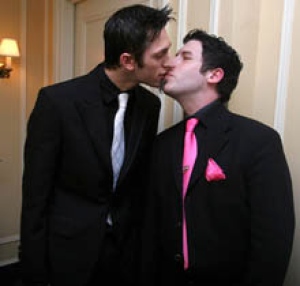 In 2007, MacIsaac married Andrew Stokes. They got married in the early hours of Sunday morning on stage during an East Coast Music Awards. According to MacIsaac, spoken during his February 25, 2017, concert at Koerner Hall in Toronto, they are now divorced. McIsaac currently lives in Windsor, Ontario. In 2003, MacIsaac was alleged to have made a racist statement on stage, at a show where he reportedly accused an Asian woman in the audience of spreading SARS. He subsequently stated that the comment was intended as an ironic parody of racism, and sued the Ottawa Citizen for misrepresenting the statement as racist when in fact he was speaking out against racial profiling happening in Canada at the time. In 2003 MacIsaac also published an autobiography, Fiddling with Disaster . In 2010, MacIsaac wrote a charity single, "Dreams", to benefit Kwame Nkrumah-Acheampong, a skier from Ghana who was the first Ghanaian athlete ever to compete in the Winter Olympics. In addition to Matthew Harder of the band House of Doc and Geoffrey Kelly, Vince Ditrich and Tobin Frank of the band Spirit of the West, Nkrumah-Acheampong himself participated in the recording, playing traditional Ghanaian percussion. The single, credited to The Parallel Band, was released to iTunes on February 19, 2010. MacIsaac also performed in the opening ceremonies for the 2010 Olympic Games in Vancouver. In the March 20, 2006, edition of the Halifax Daily News, MacIsaac declared himself a candidate for the leadership of the Liberal Party of Canada. He denied that his campaign was a publicity stunt, telling the Canadian Press that he fully intended to mount a serious campaign, but on June 21, 2006, he decided to no longer take part in the leadership race. In 2013, he again suggested to the press that he was interested in entering politics, although he did not specify for which political party.
1975 – Gary Lane and Larry Lane, born in Goldsboro, N.C., are identical twin actors, models, film producers and screenwriters. They are both gay. The twins have appeared in feature films and national TV ads and are three-time grand prize champions of reality TV competitions. They are best known for a film they co-produced and appeared in, Hollywood to Dollywood, a feature-length documentary released theatrically in 2012. The film, about their quest to personally deliver a screenplay they've written to singer-actress Dolly Parton, played at 60 film festivals and won 24 festival awards. Since the early 2000s, the Lane twins have appeared in feature films, TV programs, reality TV shows and TV commercials. As teenagers, they appeared on several episodes of Dawson's Creek and played twin colonial flag bearers in the Mel Gibson film The Patriot (2000). Other film appearances include Zoolander (2001), New Best Friend (2002), Spider-Man (2002), The Girl Next Door (2004), Eating Out 3: All You Can Eat (2009), and Jack and Jill (2011). The Lane Twins talk of their life The twins have competed on and won $50,000 on NBC's Fear Factor; beat out 24 other contestants for the grand prize of $50,000 on ABC's Winter Wipeout; and won $125,000 on the reality TV competition Set For Life. Gary Lane said their goal for appearing on these shows was to win money to pay for music rights and production costs associated with their documentary Hollywood to Dollywood. "For every wipeout, I would say, 'that was for Jolene, and for every ouch, 'that was for Coat of Many Colors!,'" Gary Lane said, referring to the need to raise money for licensing rights to hit Parton songs. The Lane twins wrote a screenplay, Full Circle, which includes a role tailored for Dolly Parton. They submitted the script to Parton's management, but Parton's managers returned it as "unsolicited material." The twins decided to drive from Los Angeles, where they live, to Parton's theme park in Tennessee, Dollywood. The goal was to try and hand their script to Parton during one of her appearances at Dollywood's 25th anniversary celebration. In addition, the documentary explores the Lane twins' concerns about their Southern hometown's potential reaction to the film (and to the brothers' homosexuality) and their desire for acceptance from their Southern Baptist mother. Also on the journey is Gary's partner, Michael Bowen, who has crafted a birdhouse for Ms. Parton. The journey to deliver their screenplay is the focus of their documentary feature, Hollywood to Dollywood, which played at 60 film festivals throughout 2011 and 2012, winning 24 awards. Parton makes an appearance in the film. After viewing the documentary, she gave the twins rights to use her music and likeness in its promotions. The Lane twins donate 10 percent of each Hollywood to Dollywood DVD sold to Parton's Imagination Library, an organization that provides free books to young children and is part of the Dollywood Foundation.
2004 – President George W. Bush announces that he supports a constitutional amendment to ban same-sex marriage.
[{(o)}]|[{(o)}]|[{(o)}]|[{(o)}]| [{(o)}]|[{(o)}]
Today's Gay Wisdom: George Moore [{(o)}]|[{(o)}]|[{(o)}]|[{(o)}]| [{(o)}]|[{(o)}] Faith goes out of the window when beauty comes in at the door. - George Moore The mind petrifies if a circle be drawn around it, and it can hardly be denied that dogma draws a circle round the mind. - George Moore A man travels the world over in search of what he needs and returns home to find it. - George Moore A great artist is always before his time or behind it. - George Moore I am filled with pride when I think of the noble and exalted world that must have existed before Christian doctrine caused men to look upon women with suspicion and bade them to think of angels instead. - George Moore The world is dying of machinery; that is the great disease, that is the plague that will sweep away and destroy civilization; man will have to rise against it sooner or later. - George Moore The difficulty in life is the choice. - George Moore [{(o)}]|[{(o)}]|[{(o)}]|[{(o)}]| [{(o)}]|[{(o)}] |
